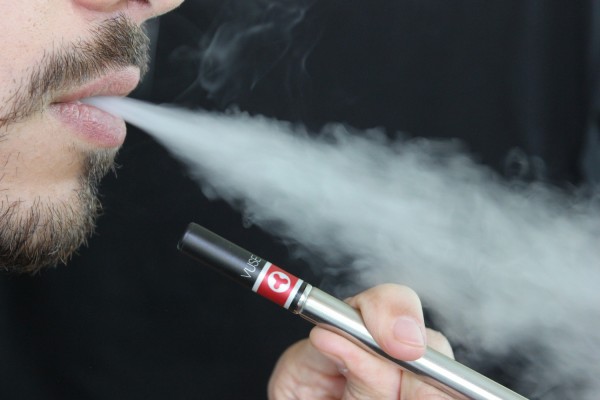Research Reveals, Alteration of the Body's Response to Viruses Caused by E-Cigarettes
The University of North Carolina Chapel Hill researchers found that people who use e-cigarettes or vapes exhibited a great alteration in the immune response to a model of influenza virus infection, an alarming discovery amid COVID-19 pandemic and flu season in the United States nears. According to the University of North Carolina's release, in a controlled study of a smoker, non-smokers, and e-cigarette users, results show that vaping changes the expression of genes and production of proteins in respiratory cells simultaneously changing or altering virus-specific antibody protection.

ALSO READ: E-Cigarettes Can Be a 'Gateway' to Conventional Smoking, Study Reveals
In the data provided by the Centers for Disease Control and Prevention (CDC), 8.1 million American adults were electronic cigarette (e-cigarette) users in 2018. Reminding of the possible harm e-cigarettes can bring an individual, CDC reminds us that the use of the device is a public health concern, and it was linked to an outbreak of lung injury and deaths among adults. Medical Xpress also added that the use of e-cigarettes is in the limelight across the United States in the past decade, and the youth noticeably made the rise of the device's use.
According to the UNC's Department of Pediatrics assistant professor and member of the UNC Center for Environmental Medicine, Asthma, and Lung Biology, Meghan Rebuli, Ph.D., said that many of the study participants, e-cigarette users showed more changes to the immune response than the smokers. She added that all of these factors could affect response to a virus and immunity post-infection adversely. She furthers that the use of the influenza virus as the model suggests that e-cigarette users have more risk to respiratory viruses than non-smokers, which indicates that COVID-19 and SARS-CoV-2 can also be an infection. The release further said that tobacco smoke inhalation has also been linked to the increase of risk of heart disease, emphysema, cancer, diabetes, stroke, and other lung diseases.
READ ALSO: Flavorings Mixed With E-Cigarette Liquids Are Toxic, Says Study
Methods and results of the study
According to the researchers, non-smokers, e-cigarette users, and cigarette smokers aging 18-40 years old were introduced to a live attenuated or weakened influenza virus vaccine (a well-established Jasper's lab model) to examine the participant's immune response safely. The release further said that pre and post-inoculation, the researcher collected nasal epithelial lining fluid nasal lavage fluid, nasal scrape biopsies, blood, and urine. For them to examine chemokines, cytokines, Influenza-specific Immunoglobulin (IgA), markers of viral load, and immune gene expressions.
The researchers noted that the amounts of viral load markers did not differ among the three groups; the researcher also found that the expected increase in nasal epithelial lining fluid anti-LAIV IgA did not occur in e-cigarette users. Jasper's said in the release that the result is not good because IgA levels should increase during infection because it is the body's natural way of defending the body against invaders. Jasper's also noted that smoking and e-cigarette both impair the IgA levels; furthermore, she also stressed that suppressed expression of important vital immune genes is also worrying alongside overall immune response suppression.
According to Dr. Rebuli noted in the release that they still do not know for sure if e-cigarette users are more vulnerable to COVID-19 or if vaccines will be less effective for them. However, she also stressed that genes, proteins, and antibodies involved in the immune system's response should not be suppressed, just like their data shows on e-cigarette use and smoking.
READ NEXT: Stoptober: The Quit Smoking in 28 Days Challenge
Check out more news and information on Immunity on MD News Daily.
Nov 17, 2020 07:00 AM EST





